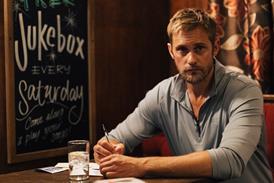A film production course in Nottingham in 1998 proved serendipitous for Rachel Robey and Alastair Clark. They met there, fell in love, got married and set up a production company called Wellington Films.
Robey and Clark made a name for themselves in 2006 with Paul Andrew Williams' low-budget thriller London To Brighton and have since co-produced Duane Hopkins' Better Things, with Sam Haillay of Newcastle-based Third Films. The $1.6m (£1.1m) film screened in Un Certain Regard in Cannes last year and is being distributed theatrically by Soda Pictures in the UK; it has taken $15,500 (£10,500) to date. Memento is handling the French release and IFC Films is planning a late-summer opening in the US.
Robey and Clark are still based in Nottingham, just over 100 miles from London. Robey believes being outside the capital is an advantage. 'The regions are coming into their own,' she says of the previously London-centric film business in the UK. 'The stigma attached to regional film-making has evaporated. We benefit from being in a smaller talent pool.' A number of other film-makers are based in the city, including director Shane Meadows who has set many of his films in the area.
'We don't see ourselves as a regional company,' says Clark. 'It is important for us to be competing on a national level.'
Right now that means developing two projects. Justin Molotnikov's feature directorial debut Crying With Laughter is a revenge thriller set and shot in Edinburgh. It is a 50/50 co-production with Glasgow-based Synchronicity Films, which is run by Molotnikov and Claire Mundell. Robey and Clark met Mundell in 2007 at the Film Business School in Ronda in Spain, where Wellington was presenting a case study on London To Brighton.
The $734,000 (£500,000) Crying With Laughter is financed by BBC Scotland, Scottish Screen and Nottingham-based regional screen agency EM Media. It is now in post in London, with sound being done at Spool Post Production in Nottingham.
Also in the works is A Man's Story, a documentary about fashion designer Ozwald Boateng which director Varon Bonicos has been shooting - and self-funding - over the past decade. It is now being financed by the UK Film Council's development fund. 'We met the director and loved his energy and the access he'd had to Ozwald,' says Robey.
She adds: 'We took our entry into the industry very seriously, and we have tried to be very tenacious and only take on projects that are going to be made. Plus it helps to have a bit of good luck.'




















No comments yet